Clem's Hot Cross Buns
"Hot cross buns, hot
cross buns,
One a penny,
Two a penny,
Hot cross buns".
I remember singing this nursery song as a boy growing up in Kuching but I never tasted one of those buns until I arrived in Australia many years later.
In decades past, hot cross buns were a bakery item which was offered during Lent (and traditionally eaten on Good Friday). Now you see the significance of the crosses on each bun. Nowadays, however, hot cross buns appear in supermarket shelves in Sydney as early as the week after Christmas (they are almost never hot on the shelves).
These buns are made with a spiced bread dough and have a wonderful scent. If you can't get them ready-made, you can make them yourself as I did today. Here's how to:
INGREDIENTS
For 12 buns
- 640 g bread flour
Plain flour will do if you don't have bread flour, but know that bread flour results in fluffier buns; - 110 g caster sugar
Fine sugar will do but the reason for caster is that it is more easily distributed through the dough for the yeast stage; - 210 g of raisins or sultanas;
- 5 g of instant yeast powder;
- 2 teaspoons of cinnamon powder;
- 2 teaspoons of All Spice powder;
- The zest from two oranges (Navel will be fine);
- 1 quarter teaspoon of salt;
- 390 mL of whole milk
- 50 g of melted butter (room temperature);
- 1 large egg.
METHOD
- Combine the flour,
sugar, spices, salt and yeast in the bowl of a mixer.
Mix the ingredients. - Start the mixer with a dough hook.
- Add the fruit and zest.
- Now add milk bit by bit followed by the butter and egg.
- Mix for about 5
minutes until an elastic dough forms.
The dough should be tacky but will release from the wall of the bowl.
If too tacky, add small amounts of flour and watch for the right point of tackiness.
Do note that flours vary in characteristics and dough of the right consistency will result with slightly different amounts of water.
Do not add too much flour - dry doughs make for tough buns whereas wetter doughs produce fluffier buns. - Cover the mixed
dough with a cloth or plastic wrap.
Now let the dough rest for about 2 hours to allow for the gluten to develop and the yeast to ferment (fluff up the dough).
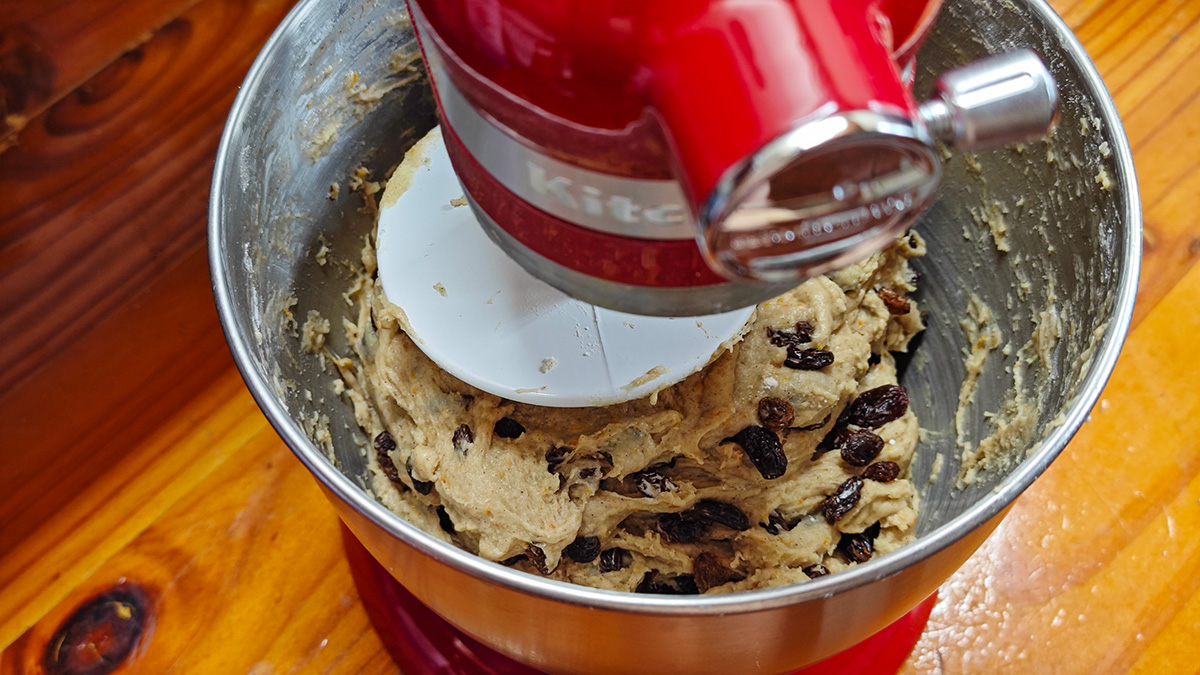
The dough just after mixing
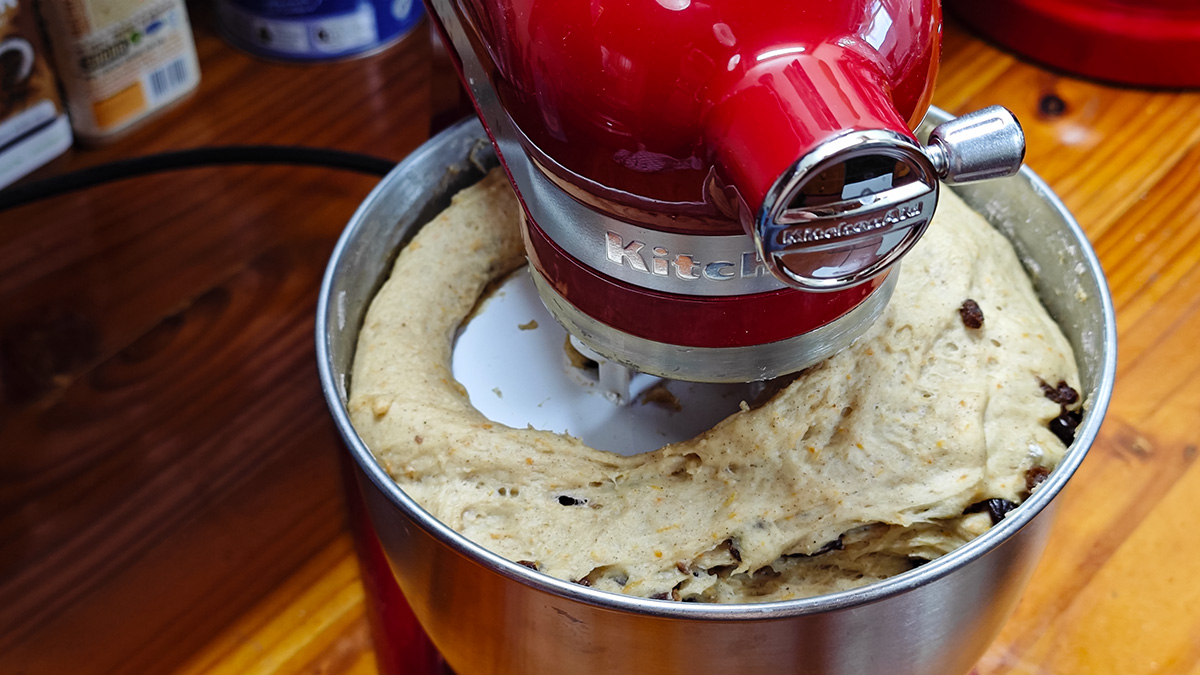
The dough after 2 h proofing
- After the proofing stage above, remove the dough from the bowl and hand knead to a rectangular log.
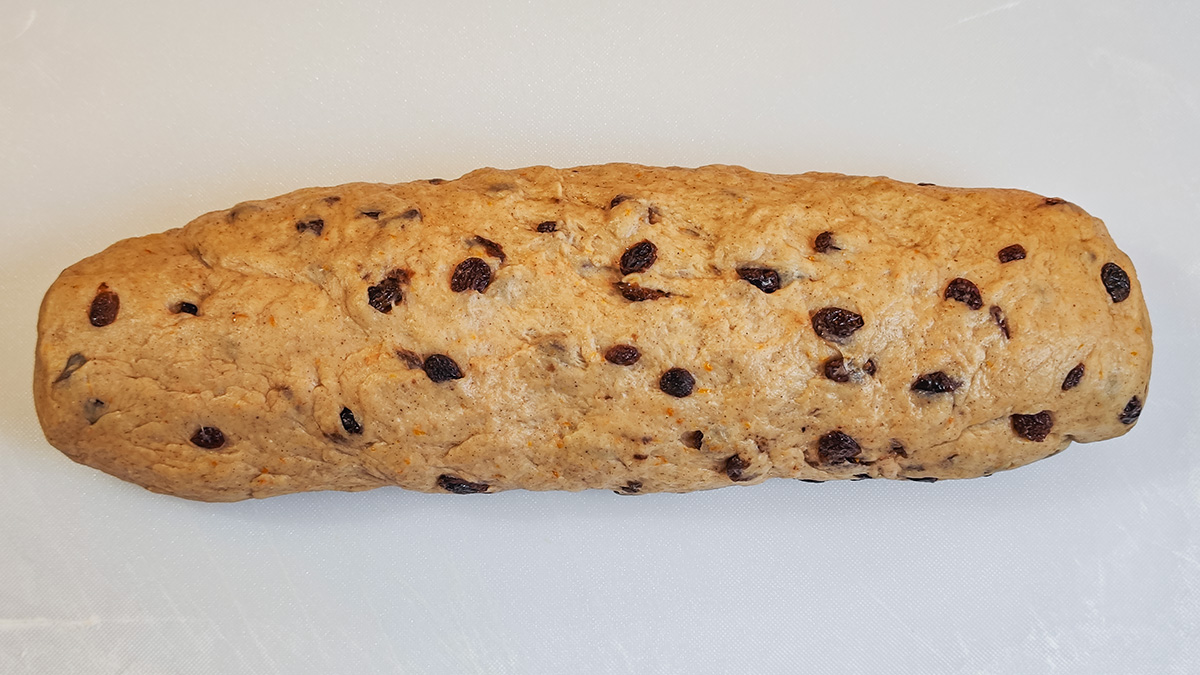
The dough rolled
out into a log to be divided into portions
- Divide the dough into 12 portions (I used a balance to weigh them out).
- Gently knead each
portion and to encourage a smooth bun top, do this:
Flatten a portion enough to be able to grab an edge which you pull to the centre.
Repeat this about five times, each time pinching an edge and pulling it to the centre.
Then use the palm of your hands to gently roll the portion into a ball.
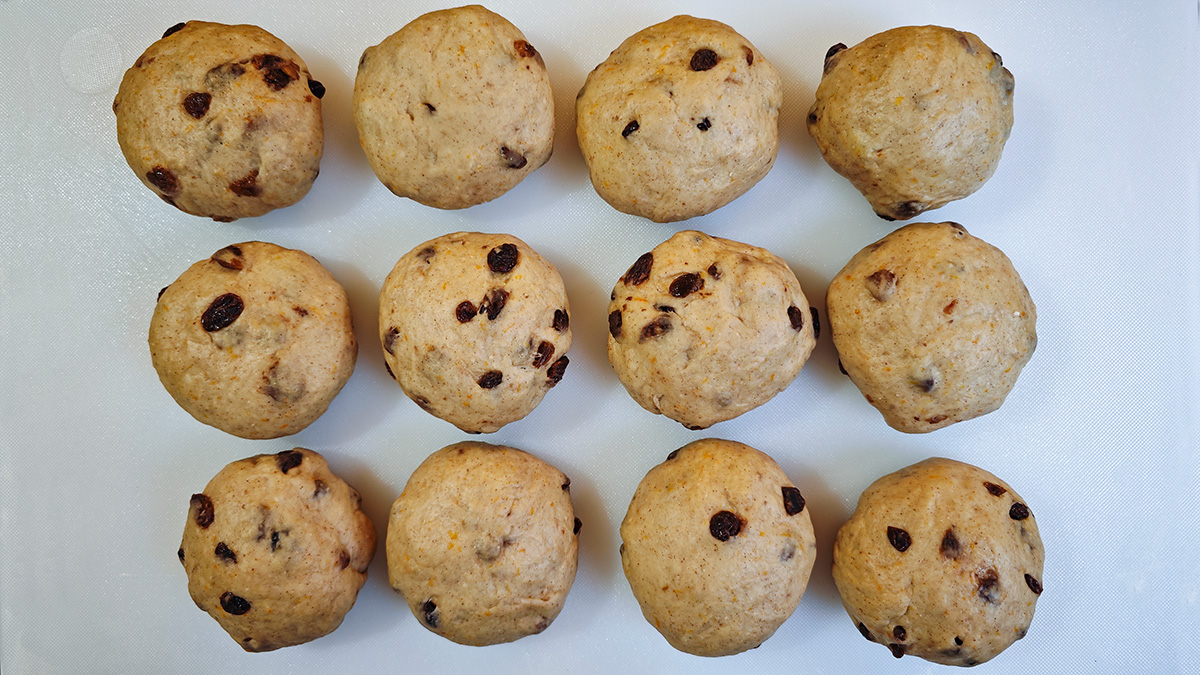
12 folded and
balled portions of dough
- Place the portions on a baking tray on top of a baking sheet.
- Glaze all the bun portions assembled on the baking tray with an egg wash (one egg plus a bit a milk beaten in).
- Now you are ready
to make crosses on the buns.
Take about 70 g of flour and add and equal amount of water to it.
Mix well and place this mixture into the corner of a plastic bag.
Snip of a tiny bit of the pointed corner of the bag to make a nozzle.
Squeeze a string of flour mixture onto the buns to make the crosses. - Let the formed dough proof for another hour on the tray (this lets the yeast fluff up the dough again after the forming).
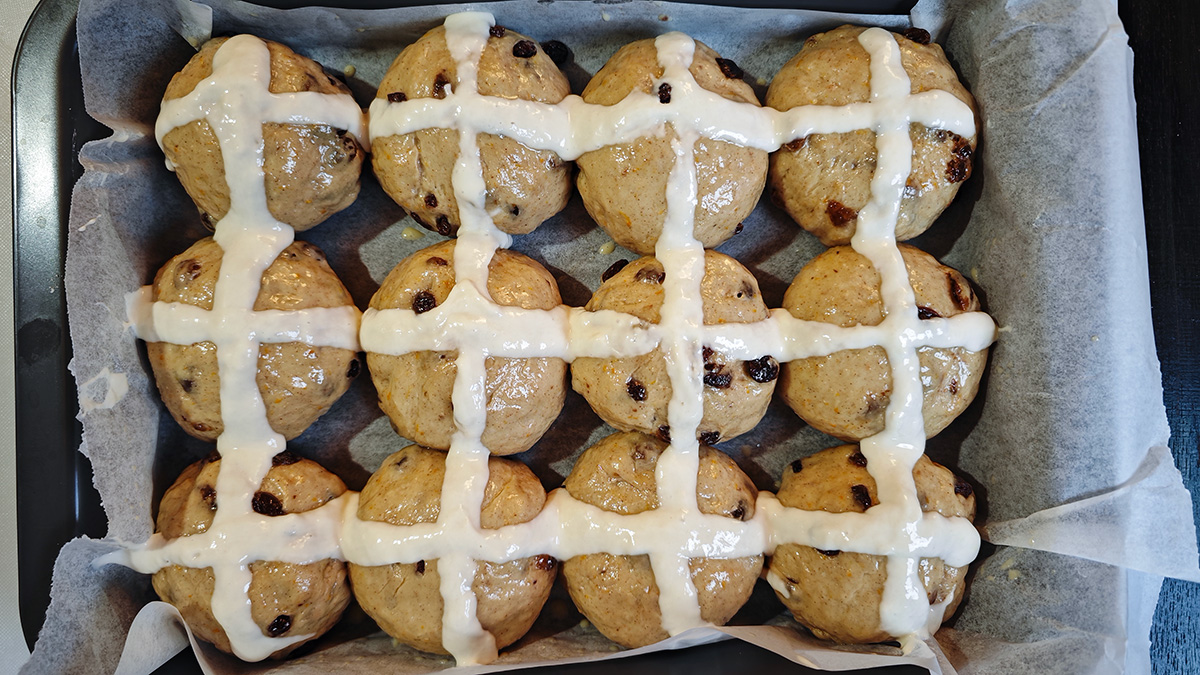
Glazed and crossed buns before the second proofing
- Place the tray of
buns into a pre-warmed oven at 180 degrees centigrade.
Bake for around 20 - 30 minutes.
Check regularly for browning.
Do not over bake or let the buns stay in the oven after the bake time is up - this dries out the buns.
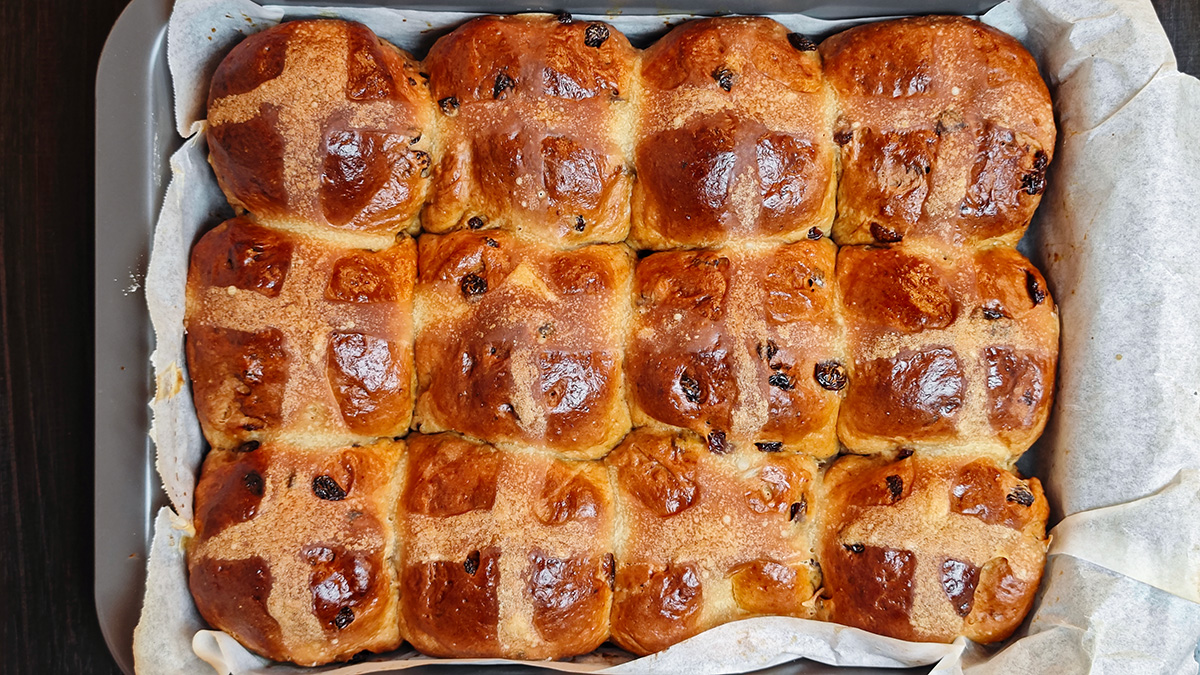
Now the hot cross
nuns are ready. Eat them while they are still warm.
Enjoy your hot cross buns!
13 March
2024
Created by Clem Kuek
